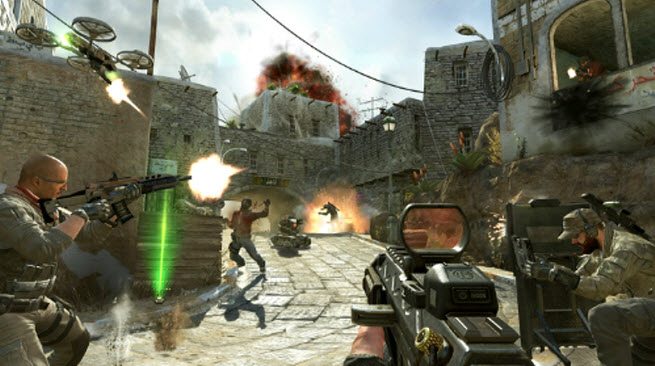GameStop’s top executives said in an earnings conference call today that the growth of downloadable content (DLC) is accelerating rapidly with new game launches.
[aditude-amp id="flyingcarpet" targeting='{"env":"staging","page_type":"article","post_id":511509,"post_type":"story","post_chan":"none","tags":null,"ai":false,"category":"none","all_categories":"games,","session":"B"}']Sales of DLC are becoming important to GameStop, the world’s largest game retailer with more than 6,000 physical stores. It sells DLC codes in those stores, and sales of such codes will play a big role in its goal of achieving $1.5 billion in digital sales by 2014.
During this quarter, digital sales (including DLC) rose 27 percent to $134 million. Overall, GameStop’s strategic goal is to grow the digital business to offset an inevitable decline in physical store sales. At $500 million in annual revenue, digital is more than a 10th of GameStop’s overall revenue.
DLC is content, often offered after release, that adds to the main game, such as new maps for Call of Duty multiplayer gaming or new episodes in titles like Mass Effect 3. But one of the fast-growing elements — something that many gamers consider controversial — is the growth of day-one DLC, said J. Paul Raines, the chief executive of the Grapevine, Texas-based company. With the launch of Mass Effect 3, more than 40 percent of players bought the day-one DLC. That, of course, was controversial because publisher Electronic Arts included a major character in the DLC that many felt should’ve been in the game. Gamers resented paying for that DLC after handing over $60 for the game. But Raines didn’t comment on that resentment. He just said that more and more major games are launching with day-one DLC.
He also said that the sales of subscriptions for services that go with new games is also on the rise. Call of Duty Elite, the gamer social network for Call of Duty, saw strong growth during the first half of the year.
Perhaps one of the strongest drivers of DLC could be a new program that makes it more convenient for getting the new content on an Xbox 360. Typically, a gamer buys a code at a store and enters the 25-digit code using a game controller in order to download the new content. Now, GameStop has a system where it immediately emails a confirmation to the gamer, who can accept it on a phone by clicking two links and thereby begin the digital download immediately, while still in the store. GameStop president Tony Bartel said it makes the downloading process much more convenient.
“We are fueling growth of DLC,” Bartel said. “And DLC is now standard on most games.”
Digital sales are up 25 percent year to date, but GameStop’s goal is to hit 50 percent. Raines said that the company has not lowered that goal in part because two-thirds of the usual sales for the year take place in the second half of the year. The same is true for digital games. Sony is currently rolling out major DLC options through its PlayStation Plus subscription program.
Beyond DLC, GameStop’s “other” category sales include sales of mobile software, tablets, and used iOS products (iPhones, iPod Touches, and iPads). GameStop has 20 million members in its Powerup Rewards loyalty program, and those members buy five times as much from the retailer as nonmembers. They account for 74 percent of sales year-to-date, and they are key to digital because GameStop can promote digital items to them as they come into the stores.

